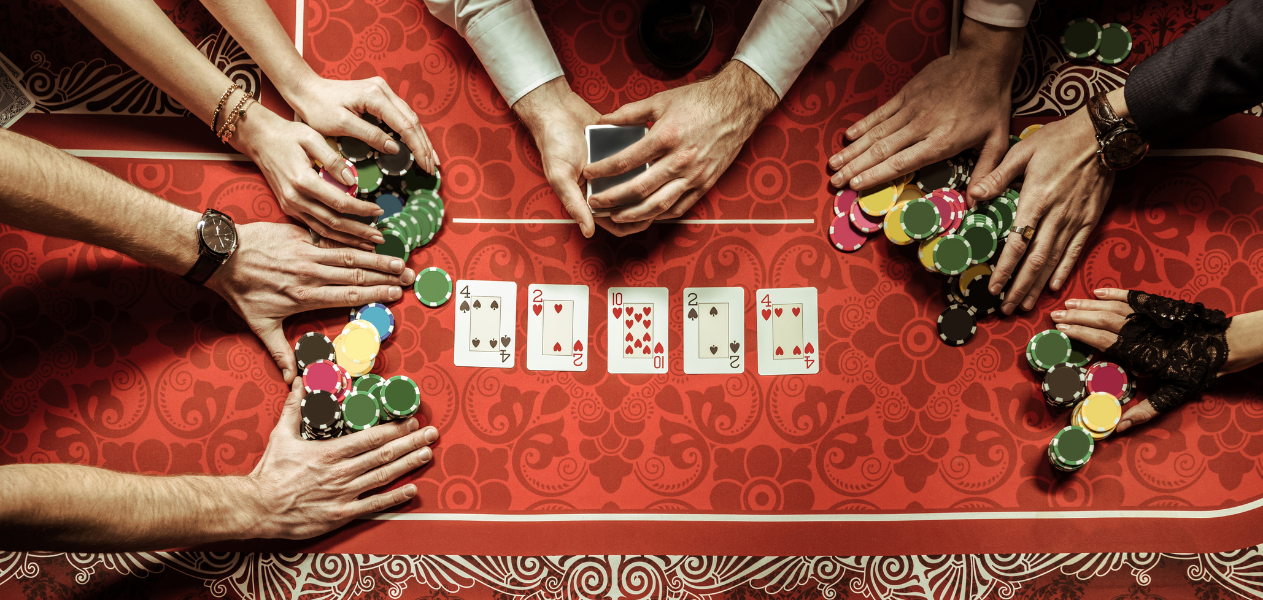THE INDIAN GAMBLING SCENE
Games with a heavy element of chance and the perfect blend of skill have been a cornerstone of Indian history and mythology since pre-biblical times. Games like Pachisi (Ludo), Parama Padam (Snakes & Ladders) and Krida-Patram (playing cards) were a stalwart in the royal courts and rural households alike. The acquisition of the nation by the Mughals and later the British, brought its own blend and affinity for gambling, and eventually, its own set of regulations. These regulations, however, somehow failed spectacularly to adapt with time.
The Public Gambling Act of 1867, set by the British government, is a central law that prohibits running or being in charge of a public gambling house. The penalty for breaking this law is a fine of ?200 or imprisonment of up to 3 months. Additionally, this Act prohibits visiting gambling houses. A fine of ?100 or imprisonment of up to one month is the penalty.

Why this law still exists after 150 years, especially when the British are long gone, and the UK has an open betting scene? There’s little concrete answer to that. The subject of gambling is considered on a state-by-state basis, with casinos operating legally in Goa, Daman and Sikkim. Even when the governments of these states appear to be opposing gambling, the massive tax revenue generated by these establishments render the authorities turn a blind eye. However, almost all of India’s central and state laws governing the regulation of gambling in the country have not been looked at long before the advent of Internet and the subsequent boom of online gambling platforms. These laws are massively antiquated and to a better extent, ambiguous.
On the face of it, gambling has always been frowned upon in India, despite being a regular across the Indian history and mythologies. More than half of the estimated US$60 billion per year Indian gambling market generates is illegal, most of which comes during the IPL season. Betting on horse races is legal in Maharashtra. Moreover, the increasing number of offshore online gaming platforms target the Indian demographic, which has already seen games like Teen Patti, rummy and poker become household favourites.

CAN ONE BET SAFELY AT ALL?
Thing is, no game is completely one of either skill or chance, rather a mix of both. So, when you have laws that try to ascribe only one attribute to a game, there’s left a lot of grey area that can then inevitably be taken advantage of.
Since games of chance, like casino games, are deemed illegal, adding an element of skill to a game takes it outside the ambit of an Act that would deem it illegal. This is the reason why betting on horse races is allowed on the country’s nine racecourses regulated by the Turf Authorities of India. This is why online fantasy sports platforms are widely popular, and legal, because while you’d still be a taking a punt, your call will be predicated on a calculated assessment of the game and its intricacies, which calls for a certain skillset.
That said, despite gambling being outright illegal, there’s no law that specifically deems online betting illegal, if the platform offering the bets is situated in a region where betting is legal. This loophole allows foreign bookmakers to offer odds on IPL, Premier League, and other popular competitions to the Indian users. They’re perfectly safe and widely used.
Additionally, these are the states where lottery-based events are legal – Assam, Arunachal Pradesh, Goa, Kerala, Madhya Pradesh, Maharashtra, Manipur, Meghalaya, Mizoram, Nagaland, Punjab, Sikkim and West Bengal.
VERDICT
Should betting be legalised increasingly in India? Yes, I believe so. Does it offer many challenges? Yes, but so does a lot of other games. With proper awareness regarding the mental health and addiction risks, the gambling market can offer a massive employment sector generating guaranteed tax returns, if Goa is anything to go by. More importantly, Indian people are not unaware of the gambling scene, as most of us play over the online gaming platforms every day. It is also to be noted that most of the ‘thrill’ betting offers comes from the fact that most of it is ‘illegal’ – legalising would take that sting out of it and generate legally acceptable revenue – a potentially highly-rewarding tax source (worth $1.5 billion reportedly) that the government is currently missing out on. The world has come a long way since the laws of yesteryear. It’s time we did too.
Written By
Anshuman Joshi






Leave a Reply